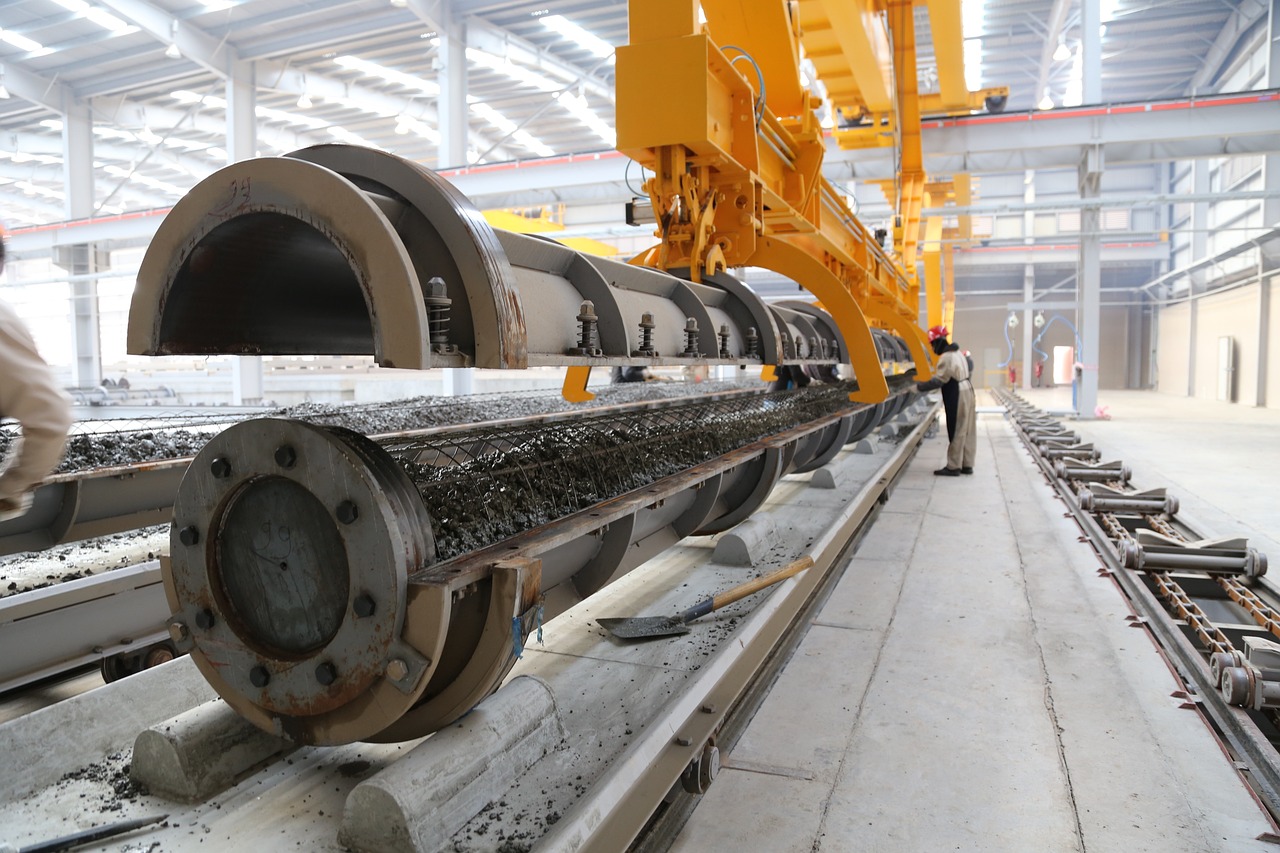Table of Contents
The realm of industry constantly seeks ways to boost efficiency and foster innovation. A revolution is underway, transforming traditional practices and integrating advanced technologies to create more robust, agile, and sustainable industrial operations.
Harnessing Automation for Peak Performance
In the modern industry landscape, automation plays a crucial role in enhancing performance. By streamlining repetitive tasks, industries can achieve higher speed and precision, reducing human error and operational costs. Robotics and automated systems take over mundane activities, freeing human workers to focus on more complex and creative tasks that require critical thinking and problem-solving capabilities. Furthermore, automation ensures a consistent output quality, essential for maintaining competitive edges in fast-evolving markets. Companies such as automotive manufacturers use robots for assembling parts, ensuring each piece is perfectly crafted. Automation also extends to administrative tasks with software handling logistics, inventory, and customer relationship management, relieving the workforce from tedious paperwork and allowing them to concentrate on strategic initiatives.
Advancing Material Science for Better Products
Material science breakthroughs significantly contribute to industrial advancements. Engineers and researchers are constantly experimenting with new materials and innovative compositions to create products that are stronger, lighter, and more sustainable. For instance, the introduction of advanced composites and nanomaterials opens new possibilities for industrial applications. These materials enhance product performance and durability while also reducing weight and contributing to energy savings. This is especially important in industries like aerospace and automotive, where weight reduction translates to fuel efficiency and lower emissions. Additionally, sustainable materials, such as biodegradable plastics or recycled metals, reflect a growing commitment to environmental stewardship. As these materials become more widely adopted, industries can produce high-quality products while minimizing their ecological footprint.
Integrating Artificial Intelligence for Smart Operations
Artificial Intelligence (AI) is transforming industries by enabling smarter operations and decision-making processes. Machine learning algorithms and AI-driven analytics help industries to predict trends, optimize supply chains, and enhance productivity across all levels of operation. For example, predictive maintenance powered by AI allows companies to foresee potential equipment failures and address them before causing costly downtimes. AI also facilitates real-time data analysis, providing insightful information that guides managers in making informed decisions instantly. In manufacturing, AI enhances production by adjusting processes dynamically based on machine performance and output quality. Furthermore, AI-driven systems can customize product designs and configurations to meet specific customer needs, creating personalized solutions and enhancing customer satisfaction.
Embracing Renewable Energy for Future Sustainability
Industries are increasingly adopting renewable energy sources to ensure long-term sustainability and reduce their carbon footprint. Solar, wind, and hydroelectric power are becoming mainstream energy choices for powering industrial operations. The shift towards renewable energy is driven by the need to combat climate change and the rising costs of conventional energy sources. Industries installing solar panels on factory roofs or wind turbines on idle lands contribute significantly to energy independence and sustainability. Additionally, energy efficiency measures, such as LED lighting and advanced heating systems, are implemented to further reduce energy consumption. Government policies and incentives also encourage industries to transition to greener energy solutions, aligning economic benefits with environmental responsibility. This major shift not only reduces industries&8217; ecological impact but also boosts their corporate image and compliance with increasingly stringent regulatory standards.
Leveraging the Internet of Things (IoT)
The Internet of Things (IoT) connects devices and systems within industrial operations, facilitating unparalleled communication and coordination. IoT-enabled sensors collect and share real-time data across production lines, enabling seamless monitoring and control. This connectivity leads to more efficient and responsive manufacturing processes. For example, in a smart factory, IoT devices monitor machinery performance, detect anomalies, and trigger maintenance protocols immediately, preventing disruptions and prolonging equipment life. Inventory management is also revolutionized with IoT technology, allowing for automatic tracking and restocking of supplies. The integration of IoT across supply chains ensures synchronization between production, warehousing, and distribution, minimizing delays and optimizing logistics. This interconnected ecosystem enhances overall productivity, minimizes waste, and enables industries to adapt swiftly to market changes.
Cultivating a Culture of Continuous Innovation
At the heart of industrial revolution is a culture that embraces continuous innovation. Encouraging creativity and experimentation within the workforce fosters an environment where new ideas flourish. Industries invest in research and development (R&D) to explore cutting-edge technologies and novel approaches to solve existing challenges. Collaboration between various departments and with external partners, such as academic institutions and tech companies, fuels innovation. Additionally, the adoption of agile methodologies allows industries to iterate quickly, testing and refining concepts without risking significant resources. This culture of continuous improvement extends to upskilling employees, ensuring they possess the knowledge and skills required to operate advanced technologies effectively. By prioritizing innovation, industries can maintain their competitive advantage and adapt to the ever-changing economic landscape.
